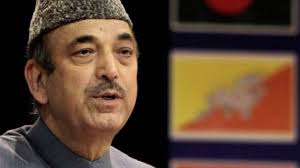Facebook launches online resource guide for educational communities
Facebook on Monday launched an online resource guide for educational communities on how to collaborate and continue the learning process using Facebook products, tools and programmes while also providing information related to COVID-19 from authentic sources.
Currently, the guide is available in English, Hindi, Marathi, Gujarati and Kannada.
In its first phase, Facebook has partnered with the UNESCO, which will support in ensuring the guide reaches learners, educational institutions and teachers across India besides supporting with the updating and curation of the guide with relevant learning resources.
The online resource will help and guide education communities on how to collaborate by using Facebook’s products and tools like Facebook Pages, Facebook Groups, Facebook Live, Messenger, WhatsApp and Instagram, said the company.
In addition, it has modules from Facebook’s digital literacy programme – “We Think Digital” to help people think critically and share online thoughtfully.
“Through our online learning resource guide, we want to equip teachers, parents and relevant government officials with ample resources and tools to help them stay connected and collaborate digitally to facilitate remote learning,” Manish Chopra, Director, and Head of Partnerships, Facebook India said in a statement.
The guide will also provide vital information about COVID-19 from authoritative and credible sources such as Government of India’s advisory, WHO India Situation Report Page, Ministry of Health and Family Welfare, Coronavirus Resource Hub on Facebook, and Guidance from UNICEF on COVID-19 prevention and control in schools and help them in dealing with anxiety and bust misinformation surrounding the ongoing pandemic.
More than 90 per cent of the world’s learners are affected by the school and university closures.
“In line with the global efforts, UNESCO New Delhi will focus on mobilizing the national and state-level actors and resources in order to develop an effective and unified response avoiding overlaps for maximum impact,” said Eric Falt, Director and UNESCO Representative, UNESCO New Delhi Cluster Office for Bangladesh, Bhutan, India, Nepal, the Maldives, and Sri Lanka.
“Further, the on-ground needs will be matched with context-appropriate solutions to provide education remotely, leveraging hi-tech, low-tech and no-tech approaches with a special focus on ensuring access for women learners,” Falt added.



